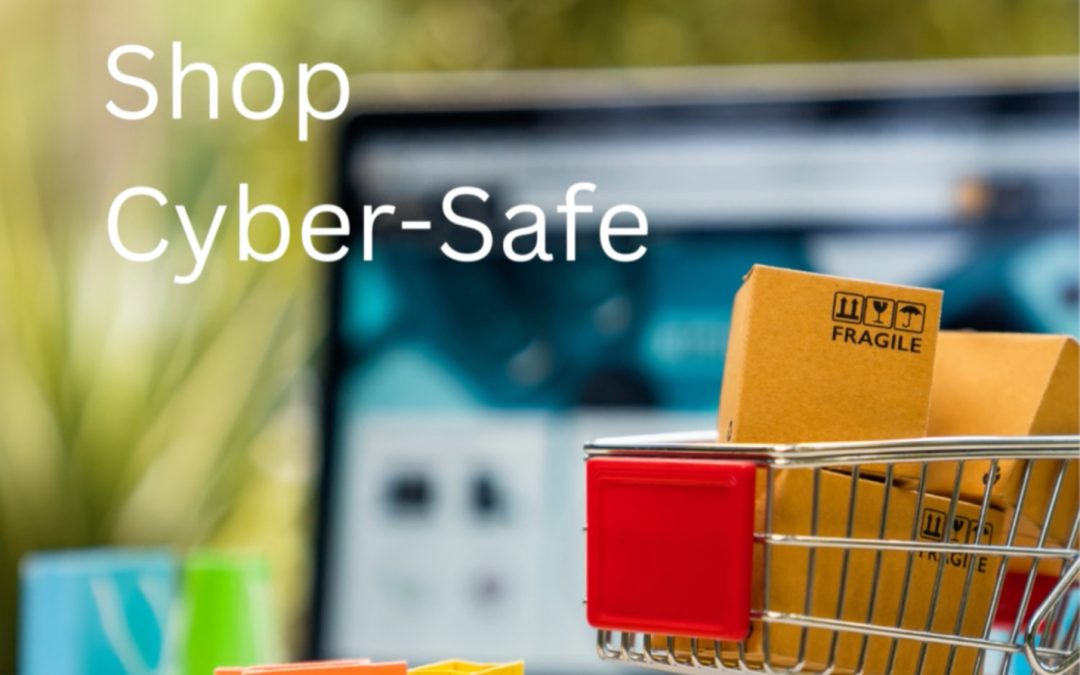Holiday shopping between Black Friday and Cyber Monday is an American tradition. Due to the high volume of these shopping days, they are prone to become targeted for cyber-attacks. As a consumer, or as a seller, here are a few ways to protect yourself and/or your customers.
Tips for Buyers
- Update your devices’ software and apps before doing any holiday shopping, as new updates tend to have upgraded security features. Equip your devices with the best security you can!
- Phishing is more active on Black Friday and Cyber Monday because you’ll likely be getting several emails regarding deals, shipping notifications, and order confirmations. Instead of clicking links in emails, go directly to the seller’s website. The specials and coupons you see in the email will be on the site if they’re legitimate. Be very cautious about opening any links in emails you receive.
- Although it may be tempting, don’t purchase from “deal” sites. These types of sites can be easily falsified or used for phishing. Stick to ordering from reputable sites like Amazon or directly from the brand’s official site, even if it’s a little more expensive. You are likely to see fake ads that look very similar to legitimate ads from your favorite brands. Instead of clicking the ad, go directly to the site and order from there.
- It may not happen on Cyber Monday, but keep an eye out for social media gift exchanges. Don’t opt-in or participate. Social media “Secret Santa and “Secret Sister” gift exchanges can be scams, and it’s best to avoid them altogether.
- Finally, monitor your bank accounts around Cyber Monday to keep an eye out for suspicious transactions. If you use payment apps like Venmo, PayPal, or others, monitor those accounts, too.
Tips for Sellers
As a seller, your customers are trusting you with their personal and financial data. Here are some steps to help protect them.
- Secure your hosting account and website. Ensure that your site properly encrypts customer data, so your customers are safe during transactions and that you do not store their payment data in your website so it’s secure, even if your site were to be compromised or hacked. At a minimum, a good SSL certificate is required to encrypt transaction data. Talk to your hosting company’s support team to ensure you are hosted in a secure server environment.
- Secure your local network. Ensure your IT team has properly configured firewalls, antivirus software and other malware protection in place to keep hackers away from your company data and customer data. Make sure your data is backed up securely and can be safely and quickly restored if an issue arises.
- Limit the number of employees who have access to customer data to only essential members who must use it to conduct the business of serving the customers. Ensure these employees, like all employees, are trained in cyber security best practices, have strong passwords, and practice good security habits.
- Like your customers, you must keep your technology up-to-date ensuring you’re running the latest versions of software and security updates.
- To give your customers peace of mind, offer multiple payment options and provide your customer service phone number and email in an easy-to-find location on your website.
Happy and safe holiday shopping from all of us here at JFG! If your business needs to level-up its cyber security measures, reach out to our IT Team. We can help you implement policies and solutions to give you and your customers peace of mind.

